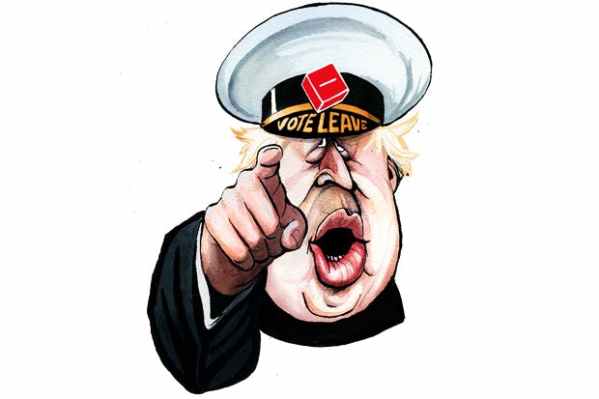Boris needs to pay attention. As James Allen said, ‘Circumstances do not make the man, they reveal him.’ Given his colourful character, discussion so far about Boris’s leadership potential has focused on the man himself; but politics is about being in the right place at the right time, as Churchill would attest.
Unprecedented levels of national debt, a stagnant economy, a healthcare system that isn’t delivering, a Eurozone that may yet collapse into meltdown, a chronic housing shortage, endemic low productivity and a state that has stretched its tentacles into so many areas of people’s lives it is proving extremely difficult to disentangle – these are just a taste of some of the challenges Britain is facing and it’s not clear how Boris would handle them.
The best description of his appeal I’ve seen is from his biographer, Andrew Gimson, whose analysis suggests his charm lies in his overt fallibility. The messiness of life that surrounds Boris gives him a certain vulnerability and tolerance that cannot help but elicit empathy. There is no doubt the truthfulness this engenders makes him an appealing ‘feel-good’ figure. And on the one hand, at a time when the voter feels the strain of the difficult circumstances Britain faces, this gives him an advantage. I’m sure it’s why when asked in the abstract so many voters are happy to put their name down as supporting him over Cameron (as many as an additional 7%, the most recent poll suggests), but there’s more to the picture than that.
The battleground of the next election will be focused on two issues. At a micro-level, living costs – voters will be asking themselves who is going to make life easier for them and their families. Coupled with this will be the broader economic question of who can be trusted to sort out Britain finances. There’s a reason pollsters are obsessing over these areas and election strategies are being crafted around them.
There is no evidence so far that Boris has the ideas to rise to these immense challenges. In practical terms his track record to date has not shown that he is a great visionary nor that he is good on implementation. It’s not even clear that he understands the nature of the difficulties to be grappled with.
His limited interventions on the economy so far seem to consist of calls for greater taxpayer spending on infrastructure projects and the building of new houses (he’s not clear where he would reduce spending to fund this), more central decision-making over planning, for example with regards to airport expansion, and finally support for the living wage, never mind that it may well lead to redundancies. Bizarrely, his main argument seems to be that the key to restoring business ‘confidence’ is simply that the government stops using the rhetoric of austerity. He has made some sensible comments about the need to stop talking down Britain’s financial services sector, but one doesn’t get the sense that he has a substantial policy agenda for how to reform it.
As is well established, David Cameron is still a clear asset to his party in the polls and the Conservative Party is not going to be looking for a new leader any time soon. Looking ahead then, even as far as a decade, to a timeframe after Cameron, it’s not clear that these problems the country faces won’t have got tougher to solve. The national debt looks like it will continue to rise, decent levels of growth may not return for the next decade, living costs may continue to go up, wages may continue to stay flat and the demographic changes going on in society will put even more pressure on healthcare, social care and welfare spending.
When it really comes down to it, the politicians of the next decade who will succeed will be the ones able to make the tough choices; those with ideas to match the scale of the challenges the country faces. It’s time someone asked the question of Boris – ‘do you?’.






Comments